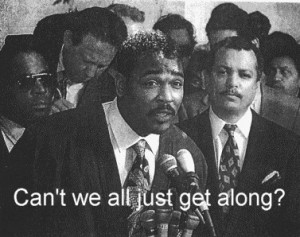An article by Omar Waraich, Mark Benjamin, Massimo Calabresi, and Mark Thompson in the May 23, 2011 issue of Time, on the topic of U.S.-Pakistan relations included a provocative quote. The authors quoted Pakistani Prime Minister Yousuf Raza Gilani, a person elected to a position of leadership in Pakistan, as follows: “If public opinion is against [the U.S.], then I cannot resist it to stand with [the U.S.]. I have to go with public opinion.”
In the above quote, the leader seems to be following. When the leader becomes follower, the follower becomes leader. The Prime Minister, admittedly out of context, seems to be saying that his opinion makes no difference. While I believe that leaders in many contexts forego their self interests for the good of the people they serve, disregarding one’s personal opinion to align with public opinion gives the appearance of concern with re-election rather than direction.
Leaders should be mindful of public opinion and not simply or necessarily give into public opinion. Leaders should take people where they need to go and not simply or necessarily where they want to go. Leaders need to make hard decisions about necessary change, changes which may require people to think about the past, the present, and the future in new ways with new consequences. Leaders need to help people embrace a vision for a future different from the present and the past. Leaders who fail to do these basic elements of leadership may be seen as poor leaders.
A leader who embraces prevailing public opinion, who tries to govern and legislate in parallel with public opinion polls, is abdicating leadership. When a leader defers to public opinion, the public effectively is leading and paying the elected representative to follow. When followers are leading the leaders, who are following rather than leading, the people may lack both a rudder and a keel.
